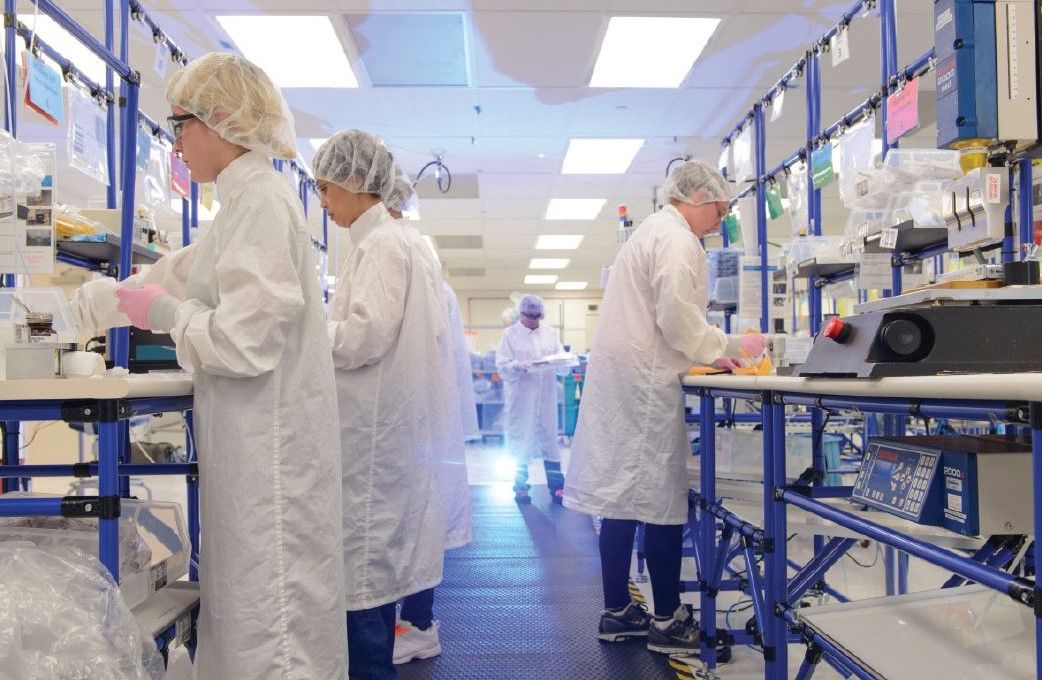Federal tax code revisions restore R&D benefits for pioneering small businesses in Delaware

Updates in One Big Beautiful Bill Act join advantageous state tax credit to support Delaware’s innovative firms
August 13, 2025
Delaware’s burgeoning life sciences industry and other businesses with research & development (R&D) operations received a boost with the recently signed federal One Big Beautiful Bill Act (OBBBA), which corrects provisions of the U.S. Tax Code that had created a financial burden for small businesses engaged in the R&D work that makes science and technology innovation possible.
Under changes made by the 2017 Tax Cuts and Jobs Act that went into effect in 2022, Section 174 of the tax code required any company that performs R&D work to amortize its R&D expenses rather than to deduct them immediately. This proved particularly burdensome for technology-heavy small businesses that usually don’t maintain the cash reserves necessary to amortize such expenses over several years. Ultimately, the changes discouraged small businesses from engaging in the innovative R&D work that leads to groundbreaking advancements.
OBBBA included a permanent Section 174 R&D Tax Fix, effective this year, which restores the ability for companies to choose to deduct immediately R&D expenditures that are made domestically and allows businesses that choose to do so to continue to amortize domestic R&D expenses over 60 or more months. In addition, development of software may be treated as an R&D expense and deducted accordingly.
These changes are particularly impactful in Delaware as the state stands out nationally for both industrial and academic R&D. Delaware ranks 6th in the United States for industrial R&D intensity of the state gross domestic product (GDP), with the over $2 billion invested in 2022 accounting for more than 3% of the Delaware GDP for that year – a growth rate since 2019 that has outpaced both the national average and that of Delaware’s peer states. In addition, the University of Delaware and Delaware’s other research institutions experienced the fastest academic R&D growth in the U.S. from 2019 to 2023 – more than doubling to nearly $462 million.
“These are impactful changes for life sciences, advanced manufacturing and other R&D-heavy industries in Delaware,” said Delaware Prosperity Partnership (DPP) President and CEO Kurt Foreman. “These updates help Delaware support important R&D work and make possible the discoveries that revolutionize how we live and address medical issues. They also strengthen DPP’s efforts to support the growth of existing Delaware companies and attract new innovative small businesses to Delaware.”
Full details about the U.S. Tax Code changes are available via this Small Business Technology Council (SBTC) post. Links within the post provide the text of an SBTC letter that had urged Congress to make the Section 174 Tax Fix; the full text of the Budget Reconciliation Bill; and a section-by-section summary of the Budget Reconciliation Bill.
Uniquely beneficial to small companies is Delaware’s own R&D tax credit, which is modeled closely on the federal R&D tax credit and offers additional allowances and the opportunity to earn a refund for unused tax credits. This measure is an advantage that sets Delaware’s R&D tax credit apart from nearby states and supports the high level of R&D that exists here.
Newsletter Sign Up
Stay Up To Date With Delaware